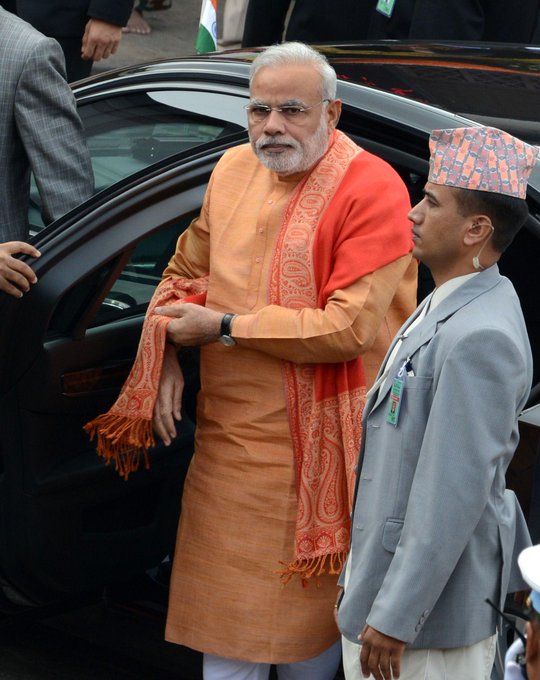Modi takes a swipe at China, rolls out welcome for Japanese
PM Modi wants Japanese to be taught online

Prime Minister Narendra Modi on Monday urged Japan to take the
initiative to introduce teaching of Japanese language online and said
Indian languages could also be introduced in Japan.
"India had introduced Japanese as a language option in schools,
but there was a shortage of teachers. I urge Japan to take the
initiative to introduce teaching of Japanese language online.
"Indian languages could also be introduced in Japan, and such an
exchange would positively impact this century," Modi said after
interacting with Japanese Deputy Minister for Education, Culture,
Sports, Science and Technology, Maekawa Kihai, and teachers of the
Taimei Elementary School.
Noting that there was a need for Asian countries to be more
prepared in the area of education, he said: "The whole world accepts the
21st century as Asia's century, and to prepare ourselves well, Asian
countries must learn each other's languages and values, so that this
century is more useful for humanity."
On the third day of his five-day trip to Japan, Modi Monday morning visited the Taimei Elementary School in Tokyo.
Narendra Modi delighted his Japanese hosts on Monday, the key day
of his state visit, with an apparent swipe at China and an offer to
facilitate business from Japan.
Modi, addressing Japanese industrialists, said that expansionism
would never lead to progress in the 21st century, and referred to
maritime tensions, a clear dig at China, locked in conflict with Japan
over the Senkaku islands.
Japan's relations with China, never cordial, have steadily worsened
under PM Shinzo Abe, and the island nation is trying to build ties with
India to counter its traditional rival.
Modi also promised to set up a special management team for
facilitating business with Japan directly under the Prime Minister's
Office, even offering to include two Japanese nominees.
The third day in Narendra Modi’s Japan trip, which could see a flurry
of dealmaking, got off to a quiet start with a visit to an elementary
school next to his Tokyo hotel.
Modi, who has come across as relaxed and cheerful on this trip,
mingled with students and teachers at the 136-year-old Taimei
Elementary, a minute’s car ride away from the Imperial Hotel where the
Indian delegation is staying.
“We are trying to teach Japanese language in our schools, and we need
teachers for that. I invite you all to come to India and teach,” Modi
said.
The morning was devoted to courtesy calls by senior ministers from
the Abe cabinet – foreign minister Fumio Kishida, finance minister Taro
Aso and economy minister Toshimitus Motegi.
Modi is also playing host to more ministers – land infrastructure and
tourism minister Akihiro Ohta and defence minister Itsumori Onodera.
The central event of the day is the official welcome ceremony at the
Akasaka Palace, to be followed by a tea ceremony, a meeting with
Japanese PM Shinzo Abe, talks between the two delegations and the
signing of agreements.
Abe, who travelled to Kyoto to welcome Modi when he got there on
Saturday, then hosts a banquet at the palace for his Indian counterpart.
The Japanese have laid on the hospitality for Modi and his
delegation, eyeing lucrative infrastructure deals and a chance to cock a
snook at their Chinese rivals.
The Indian side is keen on getting a civilian nuclear deal through
which will enable Japanese companies to supply components to nuclear
reactors. The Japanese have been pressing for additional guarantees that
the Indians will not test again; India has been resisting this on the
grounds that it has already agreed to a moratorium on testing.
Other items on the table include negotiations for the US-2
amphibious rescue and reconnaissance plane, investments in desalination
plants and the Japanese bullet train.
VIMAL SINGH
PGDM 2ND YEAR

No comments:
Post a Comment